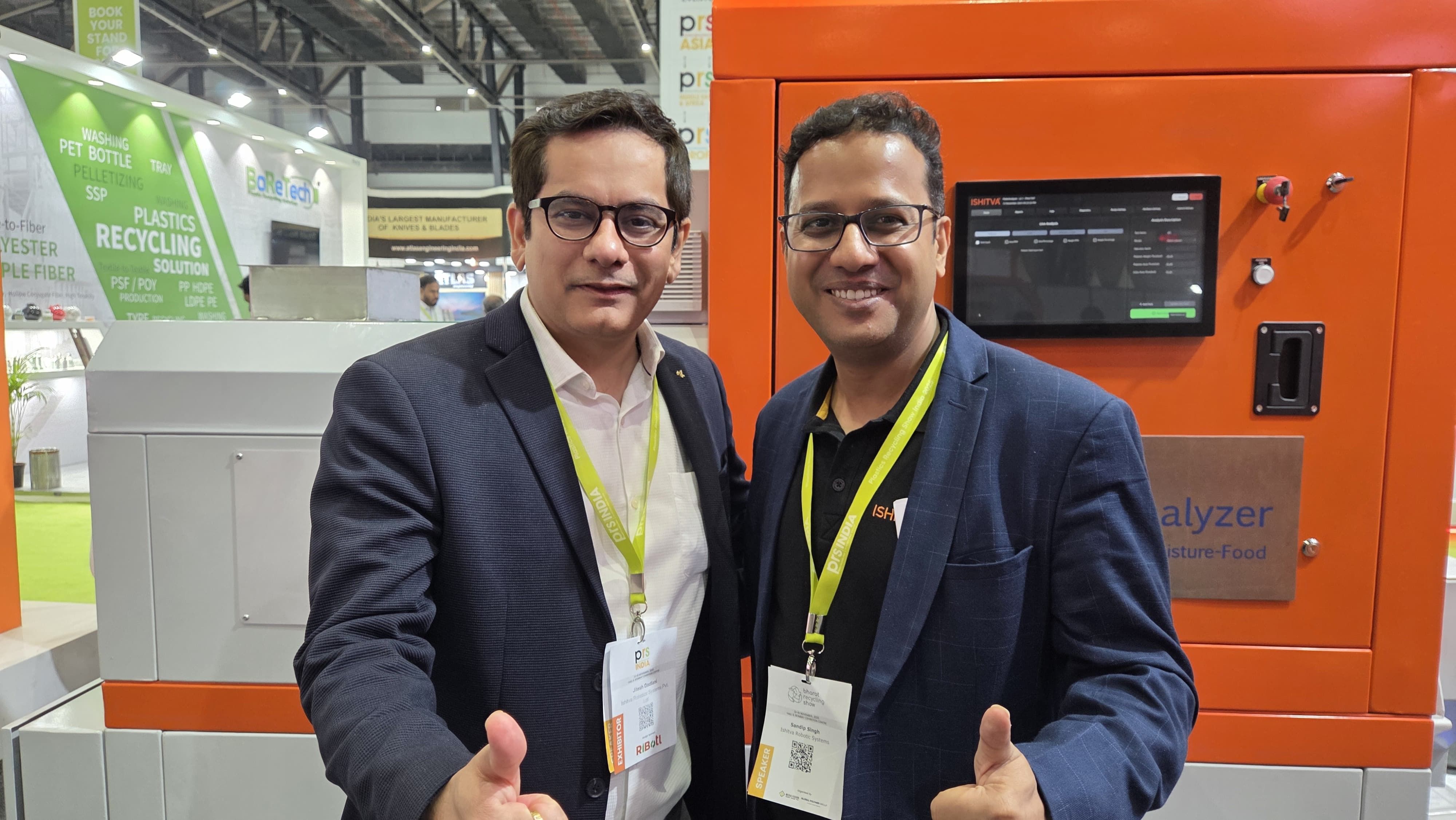Ishitva deploys AI to boost Indian recycling industry
The company prides itself on its indigenous engineering, with its solutions being 100% built by Indian engineers in India. Ishitva was among the very first globally to apply AI to waste management and segregation.
18 Nov 2025 | By Prabhat Prakash
Ishitva Robotics Systems, led by co-founder and CEO Sandip Singh, is driving a shift in the Indian recycling industry by deploying artificial intelligence (AI) and automation. Speaking to WhatPackaging? magazine at the Plastic Recycling Show India, Singh asserts that this constitutes "one of the biggest disruptions in the recycling industry in the last 30 to 40 years." The primary challenge in establishing a truly circular economy is the lack of efficiency and formality among the essential players, the kabadiwalas and small-scale aggregators, who handle initial material collection and segregation.
Ishitva's innovation tackles this by making automation accessible. It has introduced a small-scale, pay-per-use system, addressing the high cost and complexity that previously made automation impossible for minor aggregators who process volumes like two to six tonnes per day, not hundreds. This technology allows these businesses to automatically produce high-purity bales of different grades, such as food-grade and fibre-grade PET, enabling them to secure better pricing and avoid costly debit notes from recyclers.
The company’s entire proprietary algorithm and tech stack for analysing and identifying material are built in-house. This AI-driven automation replaces inefficient and hazardous manual processes. Singh shared a compelling case study where one recycler eliminated the need for 73 people to manually purify material (Singh believes that certain tasks, such as waste segregation, shouldn’t be done manually, as it is demeaning). The automated line now operates continuously, ensuring consistent quality between day and night shifts, with a payback period of less than two years. This makes adopting the technology a clear economic advantage for the industry.

Primary challenge in establishing a circular economy is lack of efficiency and formality among essential players
The foundation of a successful recycling economy, Singh explains, rests on the purity of the sorted material. Brands will only adopt recycled content if its quality is "at par or better than virgin." Since sorting is the paramount important step in producing high-quality pellets, Ishitva’s focus remains squarely on this area. While currently strong in plastics, including complex flexible packaging, where it excels in high-speed separation, the company is horizontally expanding its sorting solutions to include metal and glass. These new technologies are fully developed and will be implemented across multiple sectors within the next three months. This strategic expansion is rooted in the philosophy that "If Google is for search, Ishitva is for sorting."
Moving forward, the industry's progression is inevitable, but it requires systemic change beyond technology. Singh emphasises that the community must adopt a mindset shift: plastic is not the problem; waste management is. Individual responsibility, particularly source-level segregation of wet and dry waste, is critical for feeding cleaner inputs into the system. Furthermore, inter-industry dialogue at events like exhibitions, conferences, and public forums is vital for creating a unified standard between recyclers, converters, and packagers. This combined effort, advanced technology from innovators like Ishitva, strong industry collaboration, and conscious consumer behaviour, is the only way to accelerate India's transition to a high-quality, formalised, and sustainable circular economy.


